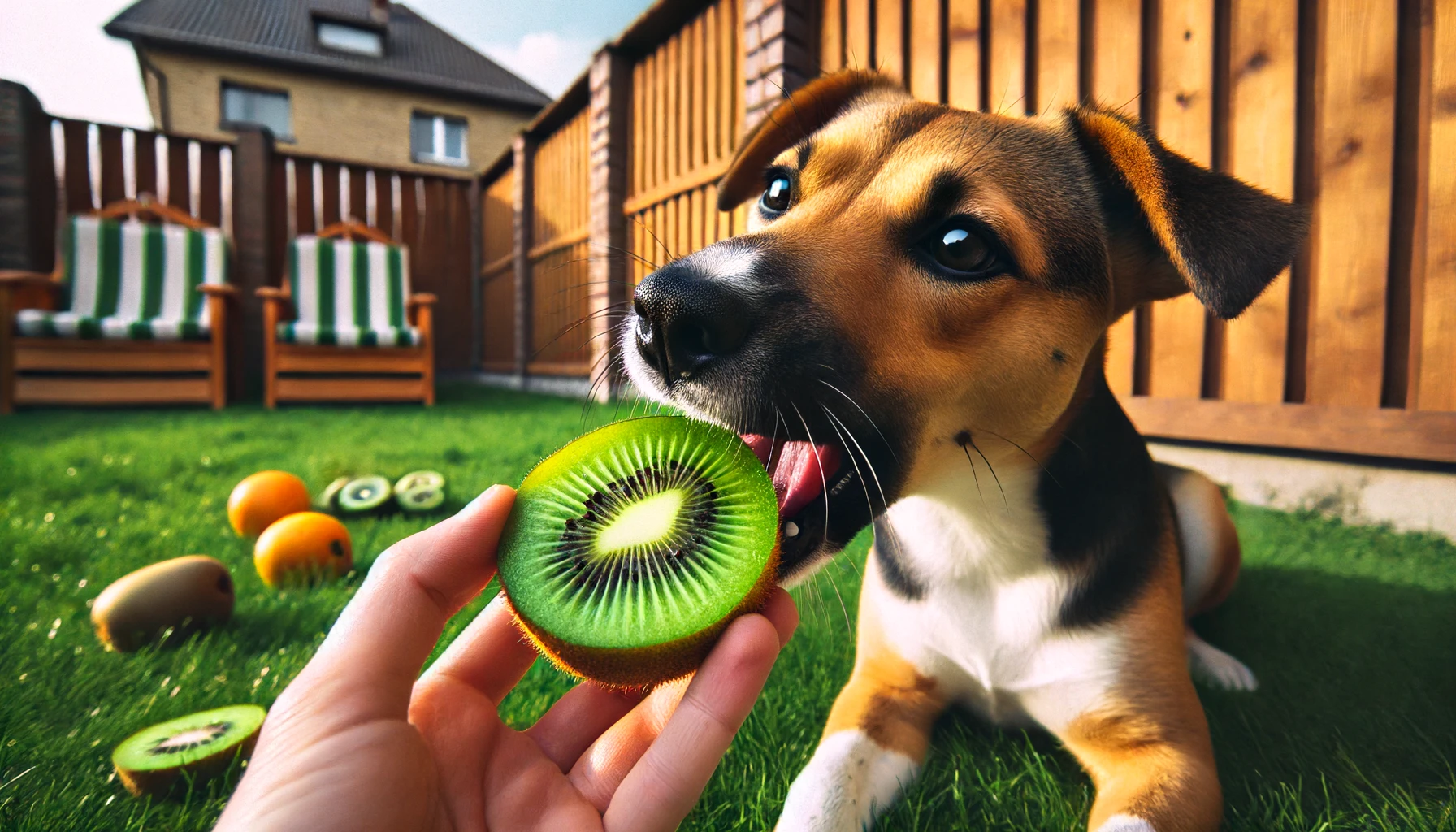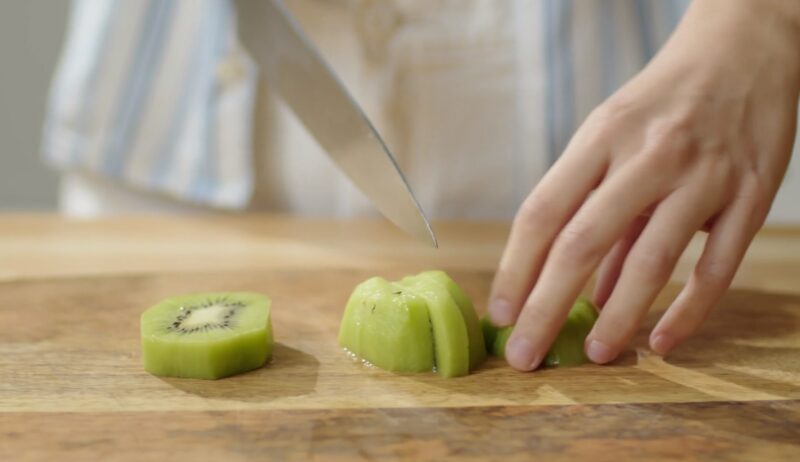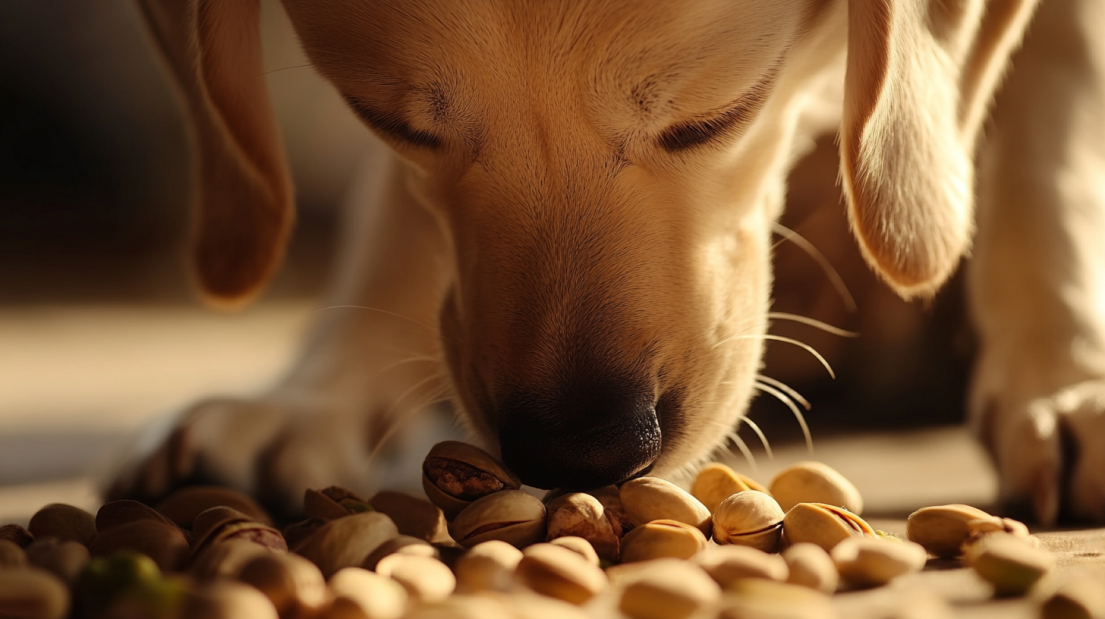
-
 Jane Harmon
Jane Harmon
- Published:
- Updated: July 10, 2024
- Category: Pet Diet and Nutrition
Share Post:
Growing up, my dog Noa was my constant companion. From morning jogs to lazy afternoons on the porch, Noa and I were inseparable. One summer day, I was eating a bowl of fruit salad, while Noa sat beside me, his eyes fixed on the bright green kiwi slices. I wondered, “Can dogs eat kiwi?”
After doing thorough research, here’s what I’ve discovered.
Is it safe?
While kiwi is generally safe for dogs, it’s important to serve it correctly to avoid any potential health issues. Improper preparation can lead to digestive upset or other problems.
Peel the skin
Kiwi skin can be tough and difficult for dogs to digest, potentially causing stomach upset. Always peel the kiwi before offering it to your dog. The skin contains a lot of fiber, which can be too harsh for your dog’s digestive system.
Additionally, the tiny hairs on the skin can irritate your dog’s mouth and throat. By removing the skin, you ensure that your dog gets all the nutritional benefits without any discomfort.
Remove the seeds
Although kiwi seeds are tiny and usually harmless, it’s a good idea to remove them to avoid any choking hazards, especially for smaller dogs. While most dogs can tolerate the seeds, some might have difficulty digesting them.
If ingested in large quantities, seeds can sometimes cause intestinal blockages. It’s better to err on the side of caution and remove the seeds before feeding kiwi to your dog.
Cut into small pieces
Cut the kiwi into small, manageable pieces to prevent choking and make it easier for your dog to eat. Small pieces also help with portion control, ensuring your dog doesn’t eat too much at once.
This can be particularly important for smaller dogs or those prone to gulping their food. Offering bite-sized pieces can make the treat more enjoyable and safer for your furry friend.
Start with small amounts
Introduce kiwi slowly and in small amounts. Observe your dog for any signs of allergic reactions or digestive issues. If everything seems fine, you can occasionally offer kiwi as a treat. It’s always better to start with a minimal amount to see how your dog’s body reacts.
Gradually increasing the amount can help prevent any adverse reactions. Always remember that treats should only make up a small part of your dog’s diet.
Potential risks

While kiwi can be a healthy treat for dogs, there are some potential risks to be aware of. That’s why before introducing any new food into your dog’s diet, it’s always best to consult with your veterinarian.
A vet can provide personalized advice based on your dog’s health, age, and dietary needs. Your vet can also help you determine the appropriate portion size and frequency for feeding kiwi. Consulting your vet ensures that you are making the best decision for your dog’s health.
Digestive issues
As mentioned earlier, kiwi skin can cause digestive problems. Make sure to peel the fruit before serving it to your dog. The high fiber content in the skin can lead to diarrhea or constipation.
Additionally, some dogs might have sensitive stomachs that react negatively to new foods. By peeling the kiwi, you minimize the risk of digestive upset and ensure your dog enjoys the treat safely.
Check out also Why Dogs Should Avoid Marshmallows.
Allergic reactions
@betterpup 🥝 5 Facts About Kiwis For Dogs #dognutrition #dognutritionfacts #dogsnack #dogfooddiet #dogfood
Just like humans, dogs can have allergies. Introduce kiwi gradually and watch for any signs of an allergic reaction, such as itching, swelling, or difficulty breathing. Allergies can sometimes develop suddenly, even if your dog has eaten a particular food before without any issues.
If you notice any unusual symptoms after feeding the kiwi, consult your vet immediately. It’s always better to be cautious and monitor your dog closely when introducing new foods.
Sugar content
Kiwi contains natural sugars, which can contribute to weight gain and other health issues if fed in excess. Moderation is key. Too much sugar can lead to dental problems and obesity, which in turn can cause other health issues such as diabetes and joint problems.
While the sugar in kiwi is natural, it should still be consumed in small amounts. Balancing treats with regular exercise can help maintain your dog’s overall health.
Why kiwi?

Vitamin C boost
Kiwi is an excellent source of vitamin C, which plays a crucial role in maintaining a healthy immune system. For dogs, vitamin C can help reduce inflammation and support overall health. This antioxidant vitamin also aids in the repair and growth of tissues throughout the body.
Although dogs can produce vitamin C naturally, adding a small amount through diet can provide an extra boost. It’s especially beneficial for older dogs or those with certain health conditions.
Fiber for digestive health
Fiber is essential for a healthy digestive system, and kiwi offers a good amount of it. Including fiber in your dog’s diet can help regulate bowel movements, prevent constipation, and support a healthy gut. Fiber can also assist in managing weight by making dogs feel fuller for longer periods.
Potassium power
Potassium is an important mineral for maintaining proper muscle and nerve function. It also helps regulate fluid balance in the body. Kiwi is rich in potassium, making it a beneficial addition to your dog’s diet.
Adequate potassium levels can prevent muscle cramps and support overall cardiovascular health. It can also aid in reducing the risk of kidney stones and help in the recovery of muscle injuries. Therefore, kiwi can be a small but significant addition to a well-rounded diet.
In summary
@nativepet Can Dogs Eat Kiwi? 🥝 Yes! Kiwi can actually be a very safe food topper or snack for your dog. Just make sure to feed in moderation. 💙 #dogtok #dogsoftiktok #doghealth
Adding kiwi to your dog’s diet can be a fun and healthy treat if you do it right. Just make sure to peel it, remove the seeds, and cut it into small pieces. This way, your dog can enjoy the tasty benefits of kiwi without any issues. And, of course, always check with your vet before changing up your dog’s food routine.
Related Posts:
- Don’t Trust That “Pet Expert” Online – Here’s Why…
- 12 Reasons Why Dogs Should Avoid Marshmallows
- What Makes Bluey’s Dog Breed So Special? Here’s Our Take
- Why Is My Dog Panting and Has Diarrhea? - What You…
- 10 Reasons Why Your Dog is Throwing Up Brown Liquid
- Why Does My Dog Have Black Gums? - Causes, Symptoms,…











